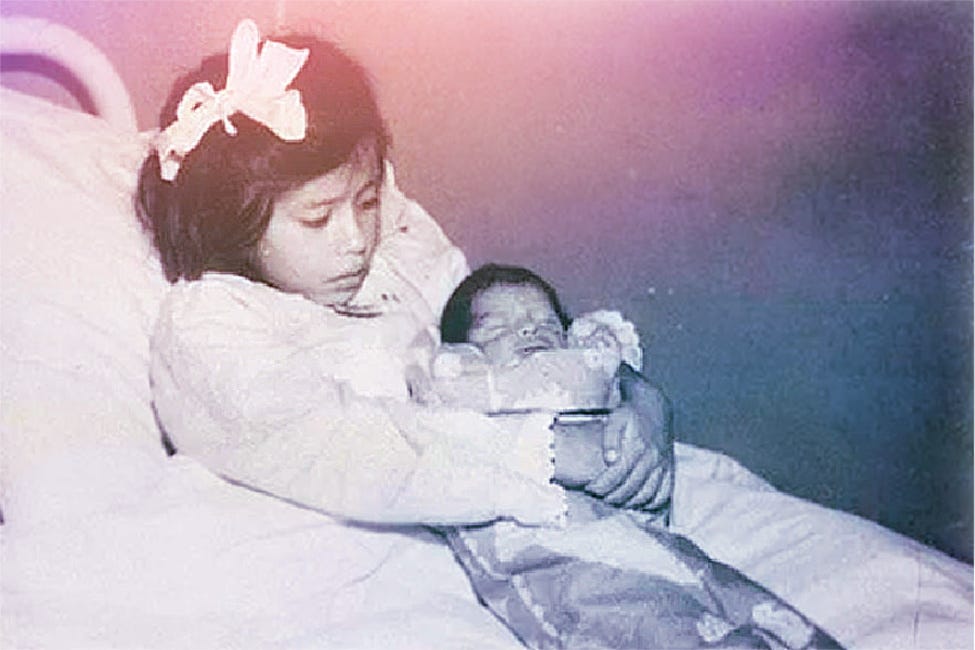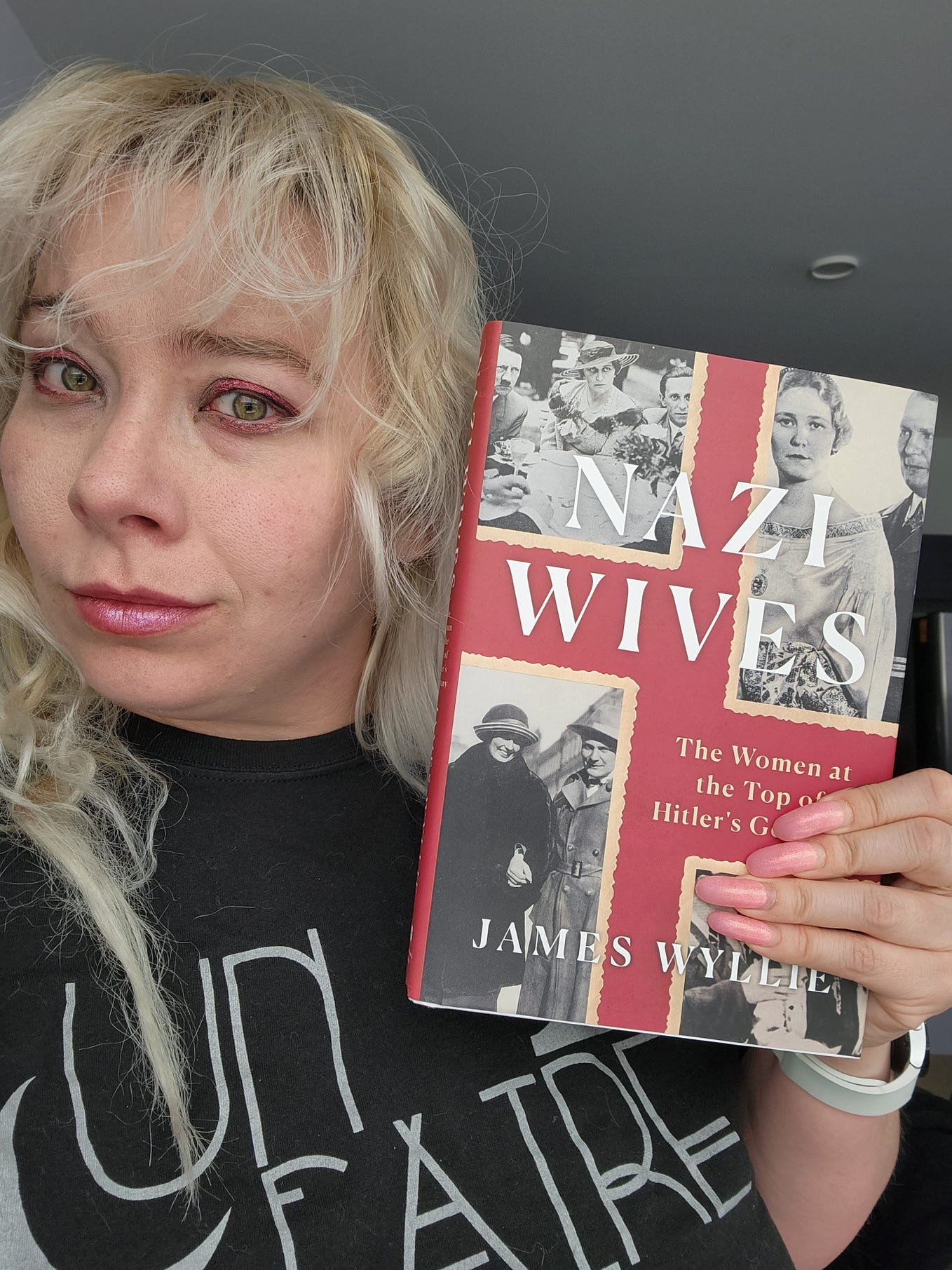Poor Little Rich Girl: The Tragic Life Of Barbara Hutton
Barbara Hutton’s life is a warning of what happens when you love the wrong people and live in a gilded cage.
I often joke about being brought up in a gilded cage society. My hometown in New Jersey was notoriously all-white, hyper-preppy, and pricey. It was the type of place where people ask, “So…which beach club do you go to?”
Oh, and they did that as a way to determine whether they wanted to talk to you or not. That was the vibe of my childhood. It hasn’t really changed all that much, really.
One of the last friends I had before I left that county was a girl who was a true Gilded Cage Syndrome Sufferer. At 25, she was a virgin. She didn’t know how to drive. She never had a puff of weed. She still lived with her parents.
If you didn’t know any better, you’d think she was maybe 15. She looked young, sounded young, and acted young. I often ended up trying to warn her about people, though she rarely listened to me.
We parted ways, and not in a nice way. She doesn’t seem to have grown that much as a person, crippled by her circumstances. The heiress to a multi-million-dollar fortune, she never had to fend for herself in adulthood.
Everything that she wanted was handed to her, much to my dismay. It was hurting her. It stunted her growth as a person. My former friend is still probably exactly where she was 10 years ago.
When I’d tell my “hood” friends about her, they’d sneer and say, “Poor little rich girl.”
The concept of a “Poor Little Rich Girl” is not a new one, nor is it a laughing matter.
People don’t realize something about obscene wealth: it alienates you from the rest of society. When you’re past a certain level of wealth, you can’t go out alone. You can’t mingle with people. Everything has to be done a certain way.
In the past, things were far worse. I often assumed that things were different back then. I (wrongly) believed that the rich rarely mingled with the poor out of image’s sake. In reality, it’s because they can’t figure out ulterior motives.
As I’ve seen personally, being exceedingly wealthy can be very isolating. Barbara Hutton, heiress to the Woolworth’s fortune, knew this all too well. That’s why she was the original “Poor Little Rich Girl.”
Barbara Hutton’s life was enviable on paper.
Barbara Hutton was the heiress to the Woolworth’s fortune. For those not aware, Woolworth’s was about as big as Macy’s was back in the 1910’s. It was the equivalent of being the heir to the Walmart fortune or Target fortune today.
During the Great Depression, Hutton had gained a total of $42 million. In today’s dollars, that’s roughly a billion dollars or so. She also had dazzling good looks, leading her to become one of the most popular women in Hollywood’s elite circles.
Beautiful, rich, and famous. Who wouldn’t envy her life?
…In reality, her life was hell.
$40 million was a crapton of money back then. However, in order to inherit that insane sum of money, both her parents had to pass away or abandon her. You can see where this goes, right?
When she was four years old, she found her mom’s body.
Her mother was rumored to have killed herself as a result of her husband’s constant philandering. Barbara was traumatized for life after the fact, but she couldn’t find solace in her dad. Her father abandoned her shortly after her mom died, pawning her to governesses and other family members.
Alone and plagued by the trauma of her mother’s death, she became a very quiet teenager who only hung out with her cousin, Jimmy Donahue. When she had her debutante ball (the NYC reveal to high society), things changed for the worse.
At that point, men viewed the blonde bombshell as “rich and on the market.”
Barbara Hutton survived a series of horrible marriages.
You would think that being rich and beautiful would be enough to get her any man she wanted. This wasn’t truly the case. Her love life remained troubled from the beginning, despite being married seven times.
None of her marriages lasted longer than five years.
Time and time again, she would marry a man who wooed her with sweet words and gifts. Her former spouses included several members of royalty (a Georgian Prince and a Baron) as well as actor Cary Grant, and international playboy Porfirio Rubirosa.
Many of them, Georgian royal Alexis Mdivani, married her strictly for cash. After he climbed the social ladder, bought himself some houses and ponies, he promptly dumped her with a demand for alimony.
As it turns out, Mdivani was already married to Hutton’s friend. In fact, he never divorced her. He just made a grab for cash, and it was one that sadly worked. He used blackmail and press connections to get what he wanted. Her reputation was ruined.
Another one of her exes, Porfirio, married her while carrying on affairs in broad daylight. He had no qualms about keeping on his relationship with Zsa Zsa Gabor during his marriage.
To hide her tears, Hutton would spend money and try to find another man to love her. She developed a reputation for being over-the-top with her spending, likely because it was the only time people actually were nice to her.
She didn’t get along with women, either.
I’ve written about this at length, but being unusually beautiful can be extremely isolating. Barbara Hutton was a perfect example of this. Her former teen friend, Doris Duke, became a major rival as an adult.
Hutton called Duke “cheap” because she wouldn’t go all-out and spent everything she had. Duke openly envied her beauty and admitted to feeling threatened by her.
To be fair, Hutton was never a good friend to her, though. Accounts show that Barbara Hutton seemed to want Doris Duke’s dating life — to the point that she would actively sabotage Duke’s relationships.
Doris Duke was the first to marry Porfirio. Hutton “poached” him.
Duke found out about her future wedding, it caused a massive explosion. It was said that Doris got drunk, shouted a bunch of obscenities about her rival, and then said, “She always wanted what I have!”
It didn’t stop there. When Doris began dating a younger jazz musician by the name of Joe Castro, Hutton retaliated by calling Castro up and saying, “I’d give you more than she would. If you were with me you’d have a symphony orchestra.“
Just from that rivalry alone, it’s clear that Barbara yearned for male approval. Heck, it’s likely that she yearned for any type of true companionship at all.
The fact that she couldn’t have it truly made her suffer.
Picked apart and alone, Barbara suffered from anorexia and substance use most of her life.
According to historic account, Barbara’s first marriage to Alexis Mdivani started with a horrible first wedding night. He refused to sleep with her, saying that she was “too fat.”
It crushed her soul.
Hutton was openly anorexic for most of her adult life after her first marriage, if not all of it. She only had one son, and rumors existed that she stayed anorexic because she didn’t want to have more children.
When it came to matters of her mental health, Barbara was clearly not well. By her middle ages, she was regularly seen belligerently drunk in public. With every spouse she wed, her fortune dwindled.
Often harassed by the press for her bad life decisions, Hutton found herself in a world where she was never wanted.
Another suitor convinced her to give up her American citizenship in exchange for Danish citizenship. This didn’t bode well in America, leading to newspapers marring her name.
Even when the newspapers weren’t making a meal out of her, Hutton found herself surrounded by users. Most of her friends only were around her as a result of her wealth. If she didn’t pay them, they didn’t show up.
After the freak death of her son, Hutton no longer had it in her to try to vie for the love and affection of those around her. She became a recluse who lived in a hotel.
In order to keep afloat, Hutton had to start liquidating her assets. Eventually, she died with only a few thousand dollars in the bank. Only 16 people attended her funeral.
Barbara Hutton believed that she could buy a happily ever after, but forgot human nature.
Being rich doesn’t mean you’ll get everything you want. You can’t buy a person’s love and you definitely cannot buy loyalty, especially when everyone around you only sees you for the money you have.
Hutton never took into account the fact that you can’t convince someone to like you by delivering more of what they don’t appreciate. They never appreciated her money. They spent it like assholes then asked for more.
Life among the ultra-rich is a gilded cage. You don’t have the freedom to know who’s there for you for you until it’s too late — unless you put up serious walls around your heart. And yet, you’re supposed to put up this front of everything being okay even when it’s not.
I know, because I’ve seen how many women experience that isolation in that world. Few, if any, have real friends who they can rely on outside of their families. Even then, those family obligations often come at a price and not every rich dame has a family.
That isolation means that you’re oddly helpless. I mean, who do you trust when you cannot even trust your own family? How can you find friends who “get it” without actually having to pay them to make them get it?
In a world where you are often told something is “too risky” to try and you face almost no consequences for staying stunted, does it ever make sense to try to venture out on your own? Barbara tried to carve out her own position in society, only to have it all blow in her face.
When you couple that with a lack of “basic adulting” education, the wariness that comes from parents trying to protect you, and the risk of blackmail, it’s easy to see why so many of the ultra-wealthy’s children crumple.
While money can make you comfortable and happy within reason, too much can turn your life into your own cushy, personal prison.
This is one of those stories that makes you wonder what she would have been like if she had only gotten some help — or what kind of wonder she could have been if only she stopped centering men in her life.
Poor, poor little rich girl.







